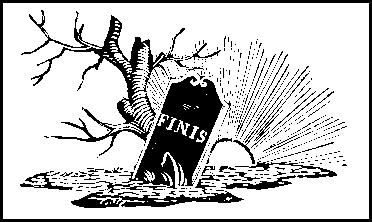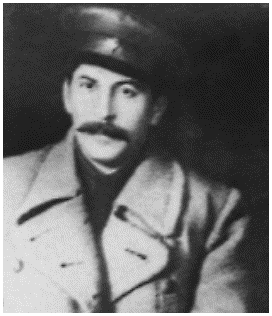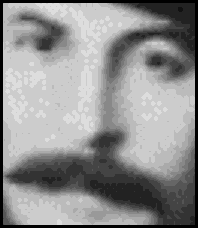Newton
Letter
John Banville
(David R. Godine)
The Newton Letter is a mutant of that form, for instead of needing 200,000 words and 800 pages to accomplish the dark deed, Banville has managed to shrink the tale down to 12,000 words and less than 100 pages.
Our hero scholar --- he's writing a book about Isaac Newton --- arrives in Fern House, in Ireland, and rents a cottage. The main house is occupied by the Lawless family. Lawless. Get the picture?
There's the drunk Edward, married to ætherial Charlotte, with an adopted niece named Ottilie ought-to-lie and the strange child Michael who likes hiding here and there and spying on people. We can't quite figure out who he belongs to, and how Edward got into the family, and why Ottilie is such a hot-pants. In general, they are all Charles Addams types, and there's much heavenly thunder and storming, thrashing sycamores and strange noises from the big house, with its "smashed fanlight over the door."
It's the kind of a place "where you picture a mad step-daughter locked up in the attic," says the author --- who then proceeds to show us a generally mad family who are not locked up in the attic, but roaming around dreamily (or drunk), saying cryptic things to our narrator. Since this is not the 1830s or 1890s but the 1960s or 70s, they have all the modern vices: Edward ("something wrong with his stomach") is drinking himself to death, Charlotte is taking too much Librium, and Otta-lie is a laconic sex-nut who promptly seduces the narrator, who then falls in love with Charlotte. Get it?
Banville's writing is up to the occlusive task he has set for himself. He's especially good with quick philosophical bolts. This, on what is happening to him at "Ferns:"
The future had ceased to exist. I drifted, lolling like a Dead Sea swimmer, lapped round by a warm blue soup of timelessness.
He can also cook up impressive portraits of his characters in a very few words. This is one of the visitors to Ferns, a woman improbably named "Bunny:"
Her skirt was severely cut, and the padded shoulders of her jacket sloped upward, like a pair of trim little wings. An impossible pillbox hat was pinned at an angle to her tight yellow curls. It was hard to tell if her outfit were the latest thing, or so old-fashioned that its time had come round again, but it gave her an antiquated look that was oddly sinister. Her mouth was carefully outlined with vermilion glaze, and looked as if a small tropical insect had settled on her face.
It's hard to figure out exactly what is going on, but the verbal fireworks make up for the literary and mental obfuscations. Newton figures heavily; viz, he sought a means of explaining the nature of the ailment, if ailment it be, which has afflicted me this summer past. The letter seemed to me now to lie at the centre of my work, perhaps Newton's too. Banville then goes on to make up a totally fictional letter from Newton, describing his encounters "with tradesmen, the sellers and the makers of things.
They would seem to have something to tell me; not of their trades, nor even of how they conduct their lives; nothing, I believe, in words. They are, if you will understand it, themselves the things they might tell.
Get it?
 Whatever else, The Newton Letter is good, albeit misty reading in a Henry Jamesian sort of way; the dialogue is something else again, rather like Pinter, or even Beckett --- and is especially delicious when Our Hero decides to tell vague Charlotte of his love for her: "Tell her something, tell her a fact, a fragment from the big world, a coloured stone, a bit of clouded green glass. Young men of the Ipo tribe in the Amazon basin pledge themselves with the nail parings of their ancestors."
Whatever else, The Newton Letter is good, albeit misty reading in a Henry Jamesian sort of way; the dialogue is something else again, rather like Pinter, or even Beckett --- and is especially delicious when Our Hero decides to tell vague Charlotte of his love for her: "Tell her something, tell her a fact, a fragment from the big world, a coloured stone, a bit of clouded green glass. Young men of the Ipo tribe in the Amazon basin pledge themselves with the nail parings of their ancestors."
I put my hands on her shoulders, and a hot shock zipped along my nerves, as if it were of her very being, and "Charlotte," I whispered, "Oh Charlotte!" and there was a lump thick as a heart in my throat, and tears in my eyes, and the Ipo drums began to beat, and all over the rain forest lurid birds with yellow beaks and little bright black eyes were screeching.
She stirred, and turned up her face to me, blinking. "I'm sorry," she said, "I wasn't listening. What did you say?"
Get it?
Doll's
House
Henrik Ibsen
Nicholas Rudall, translator
(Ivan R. Dee)
As we pick up on her, in the doll's house, where she lives, a living doll --- it's just about Christmas, eight years later. It's a middle class life in a middle class home in Norway, being pampered by her husband, a lawyer named Torvald --- a man replete with Scandinavian chilblains. He's just been made bank president, and his first task will be to tell Nora no, she can't have more money. The second will be to fire the scoundrel Krogstad, who works as a clerk --- the one who gave her the loan.
Krogstad tells Nora that if she doesn't put the squeeze on Torvald so he can keep his job he's going to blow the whistle on her. You know mid-Victorian Oslo --- it's quite different that modern-day laissiez-faire America: good people just don't forge financial notes. Once everyone finds out, Torvald will be disgraced; he will lose his social standing, perhaps his job, Nora may have to take in sewing for a living, and in the process, he and the three children will be beggared. No Chapter 13, no fed-sponsored S&L bailouts back in Norway a hundred or so years ago.
Fortuitously, Nora's old school friend Kristine Linde turns up, in what we might charitably call a deus ex machina. Nora tells her about Krogstad's threat. Now, Kristine was Krogstad's sweetie many years ago, but she dumped him for a man who, afterwards, went belly-up --- financially, not passionately. She's been sewing for a living every since. Once she hears the tale, she decides to save Nora's sweet ass.
She does a come-on to hungry Krogstad, tells him she's sorry she blew him off, and it was a great mistake, gives him the old don't-
He also calls her his squirrel. Little does he know that his squirrel has been squirreling away money for eight years to pay off the debt that brought him back from the brink of death. When he finds out about the note, he is beside himself. She's going to ruin his career. She's a hypocrite, "a liar...a criminal." She can't be trusted with the kids. They'll have to stay together for form's sake, but he'll lock her away from them. Her doll's house will turn into a jail house.
Well, his songbird is no longer interested in having her wings clipped. She had decided to kill herself over the shame of what she had done --- but Torvald acts like such a jerk that she decides that he can go to hell. She's going to take off, make a new life for herself, get away from him and the kids. She might even go back to Italy and dance the Tarantella some more, or even go west, to LA --- try to get on Hollywood Squares, join the Spice Girls.
He doesn't know what to make of his little lark ascending: doesn't quite believe her until she takes her things and goes out the door and the curtain comes down. Those of us who had the misfortune to major in what they used to call "English" had to wade through plays written by the likes of Shakespeare, Kyd, Marlowe, Wycherly, Gay --- and odds and ends of romantic drama by Shelley and Keats. Those of us who were fool enough to do Greek Tragedy had to suffer with "The Trojan Women," "Oedipus," "Electra," and those of us who were dogs for pain did "Modern Drama" --- Ibsen, Strindberg, and the other "neo-realists." It was a pain, let me tell you.
For, it goes without saying that plays are meant to be played, not read. Shakespeare's a fine example: try to spend an evening with that windbag Lear ranting and raving on the page, or Hamlet's yes-
It is no wonder that many of us, in the years since then, have avoided drama-
What a surprise! Maybe it's Nicholas Rudall's new translation. I couldn't out it down. It's tight, and terse --- reads like a good spiffy short novel. Nora is a schizoid type, alternatively madly happy, and then, threatening to kill herself. To Torvald she acts like a doll --- and he, naturally, wants to keep her there, in her pretty dresses, a slave of love, with their doll-like children. And the villain Krogstad practically marches on stage curling his black moustache, saying, "Now, me proud beauty, I have you in my power."
Nora and Torvald do endless begging and scolding over moolah ("But we can't just go wasting money..." "You could give me more money...no more than you think you can spare...") making this bit of 19th Century drama just like a real 20th century marriage, battles over the budget in the TV room.
There's some byplay with a Dr. Rank, who's secretly in love with Nora (and secretly dying of syphilis --- venereal disease being an old Ibsen standby); there's the time-honored maid and Mrs. Linde --- but above all, the triad of Krogstad, Nora, and Torvald makes for a wonderful case study of what, now, in the late twentieth century, we could call a classically dysfunctional family system. Nora's decision to become a late Victorian hippie, on the road, children left behind, doesn't necessarily parse --- but it is still a rambling good melodrama, for those of us who are still fans of that particular genre.
 So, in my youth I wrote poetry.
So, in my youth I wrote poetry. Jung says that the major figures in our life (figures of love, hate, fear, anger, passion) have all come to us by the time we are ten. We internalize them at the same time that we are internalizing the language, the ethics, the morals of our world, the mannerisms that we grow up with.
Jung says that the major figures in our life (figures of love, hate, fear, anger, passion) have all come to us by the time we are ten. We internalize them at the same time that we are internalizing the language, the ethics, the morals of our world, the mannerisms that we grow up with.